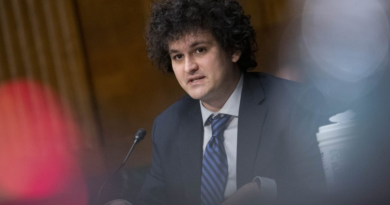Thanksgiving kicked off a COVID surge, and it's slamming U.S. hospitals already battling the tripledemic: ‘It’s the perfect storm for a terrible holiday season’
The U.S. is seeing a post-Thanksgiving surge in COVID cases and hospitalizations, U.S. Centers for Disease Control and Prevention Director Dr. Rochelle Walensky said Monday—an expected but concerning development, with hospital capacity already stretched thin by epidemic levels of the flu and RSV.
“The rise is especially worrisome as we move into winter months, when people are assembling indoors with less ventilation,” Walensky said on a call with journalists. It’s more concerning, she added, given upcoming holiday family gatherings involving the elderly, who are at higher risk for severe outcomes from all respiratory illnesses circulating at high levels this fall.
U.S. COVID hospitalizations began trending dramatically upward after Thanksgiving, particularly among those ages 70 and older. The current seven-day average of COVID hospitalization sits at 4,650, according to the CDC—up 27% from the week prior.
U.S. hospitals are already under immense stress this fall, with epidemic levels of RSV and flu in the country, in addition to COVID, forming what experts are calling a “tripledemic.” Last week adult hospitalizations rose 15% to 20% week over week—mostly among the elderly and those with preexisting health conditions, Walensky said.
Last week 77% of U.S. ICU beds were occupied, according to Johns Hopkins. Most of those beds—nearly 56,000—are occupied by patients who don’t have COVID, while just 4,000 are occupied by those who do have it.
Levels of flu or flu-like illnesses are also “high” or “very high” in 47 U.S. jurisdictions—up from 36 last week, Walensky said. Since Oct. 1, the U.S. has seen nearly 9 million confirmed cases of the flu, nearly 80,000 hospitalizations, and 4,500 deaths due to the disease. During the last full week in November, flu hospitalizations nearly doubled over the week prior, according to CDC data.
And RSV levels remain high nationally, though there are some signs that they may have peaked in the South and Southeast, Walensky added.
This year’s flu season is off to an early and dramatic start, Dr. Sandra Fryhofer, board chair of the American Medical Association, said on Monday’s call. “And with COVID and RSV, it’s the perfect storm for a terrible holiday season.
“You could get really sick this year and ruin your holiday celebration if you don’t get vaccinated,” she said, urging those eligible to receive their Omicron booster and their flu vaccine, which can safely be received at the same time.
Even those who’ve already had the flu this season should get vaccinated if they aren’t already, Fryhofer added. Multiple variants of the flu are circulating, as usual, and it’s possible to get it multiple times in one season.
Federal health officials on Monday encouraged those feeling sick to test themselves for COVID, and to arrange for a flu test if their COVID test comes back negative. Antivirals like Tamiflu for flu and Paxlovid for COVID are available via prescription, but must be taken early in an infection to make a difference, they said.
Walensky also recommended that residents of the nearly 6% of U.S. counties with high “community levels” of COVID mask up, in addition to those who travel by plane, train, and bus, and those who are immunocompromised or at risk for severe disease.
“Community levels” is a measure the federal health agency determines by looking at new COVID hospital admissions in a county, in addition to the percent of staffed beds in use by COVID patients. Per this metric, nearly a quarter of U.S. counties have “medium” community levels of COVID, and nearly 70% have “low” levels.
The metric, however, differs from “community transmission” of COVID, which the CDC determines by looking at the number of new cases reported to public health officials over the past week, as well as the percentage of lab-based COVID tests returning positive. By this metric, more than half of the country is seeing “high” COVID transmission, while more than a quarter is seeing “substantial” transmission.
Our new weekly Impact Report newsletter will examine how ESG news and trends are shaping the roles and responsibilities of today’s executives—and how they can best navigate those challenges. Subscribe here.



